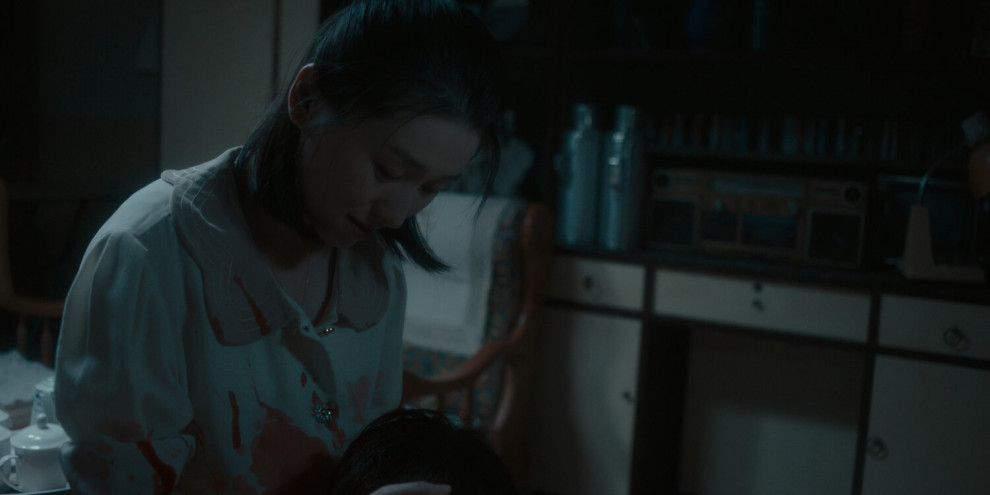When a movie refers repeatedly to David Foster Wallace's “Infinite Jest”, a notoriously difficult-to-read novel, it is bound to follow a non-linear path, which is exactly what “Ex-Wife Monogatari” does, in a somewhat experimental short, which lingers, though, towards genre conventions.
Ming, a painter, is experiencing a debilitating grief after his wife Li has passed away during a miscarriage. To fill the void inside him, he seeks the company of other women, a number of which are eager to “help”. However, his trauma remains and the memories of his wife continue to torment him, to the point that he tries to manipulate each woman she meets to be exactly like her. Eventually, he meets Hong at a funeral, a woman who looks and acts like Li, and who is soon revealed to foster another “fetish”, of only being loved when she pretends to be someone else. As the childhoods of both of them are revealed along with footage from Ming's life with with Li, the two start filling each other voids. This however, is not a typical, happy-ending romantic story.
Zihao Su directs a movie that follows a very strange, confusing and disorienting path into its horror/exploitation premises, to the point that is quite difficult for the viewer to understand what is happening on screen, even more so since past and present, fantasy and reality are mixed almost constantly, while the frequent cuts also add to that sense. At the same time though, Zihao Su's comments eventually come to the fore, even if in not so eloquently manner, with the narrative dealing with religion, parenthood, trauma, solitude and even the concept of finishing things or not (in this case books).
At the same time, the visual aspect, which moves through a combination of the style of Sion Sono and Kim Ki-duk (the finale in particular) work quite well for the short, with Andy Yu's cinematography and particularly his coloring being exceptional. The aforementioned combination also applies to the narrative, which soon gives its place to exploitation, with the shocking finale being the apogee of this aspect.
Zhe Gong as Hong and Jialong Li as Ming give performances that are in perfect resonance with the overall aesthetics, intensifying the sense of disorientation through the way they present their facades of normality and hid their inner perversions.
“Ex-Wife Monogatari” is difficult to watch, both due to the sense of disorientation that permeates the narrative and the extremity of the images. However, the production is impressive, particularly the visual aspect and the film emerges as quite appealing and intriguing, and one that fans of Sion Sono will appreciate particularly.















